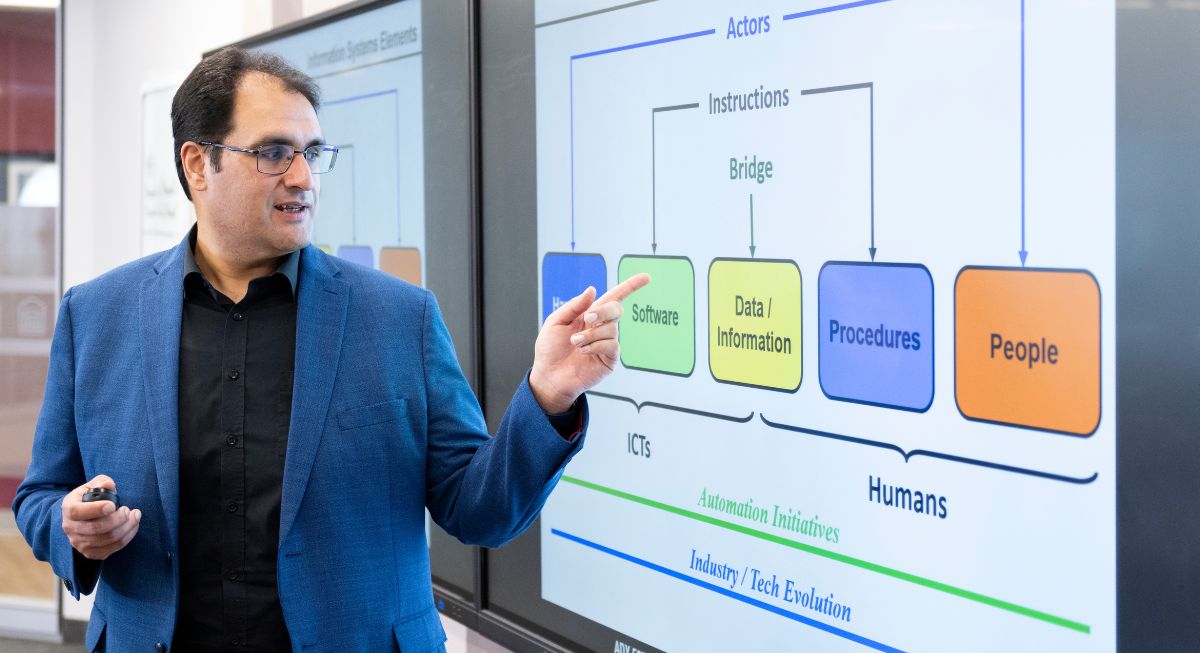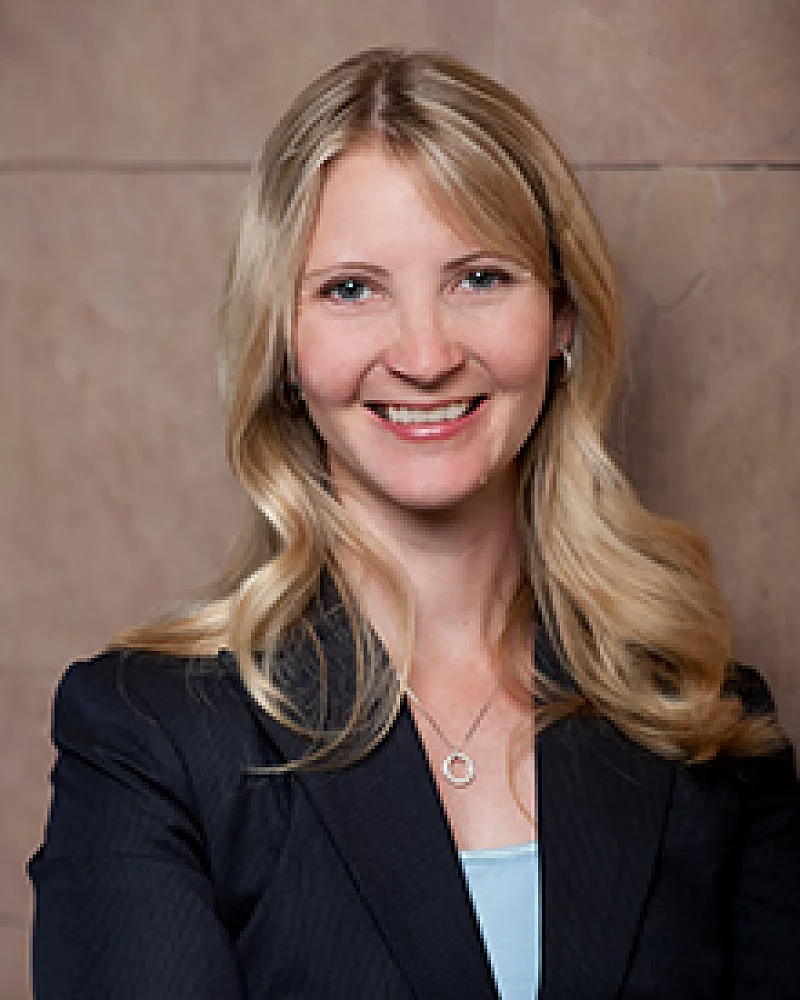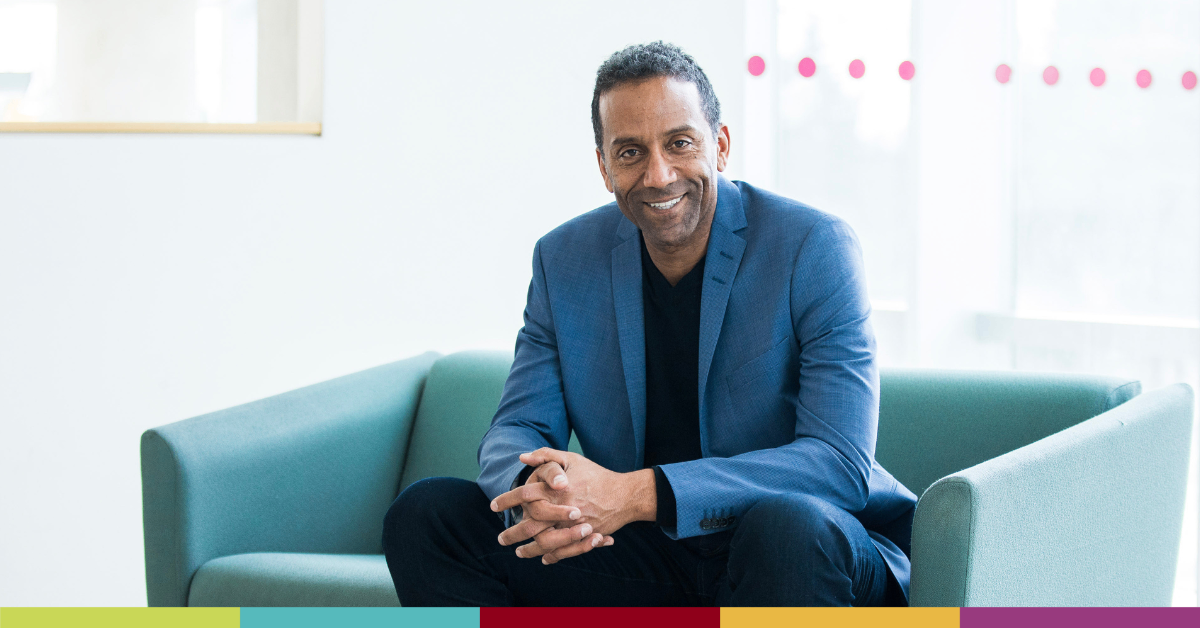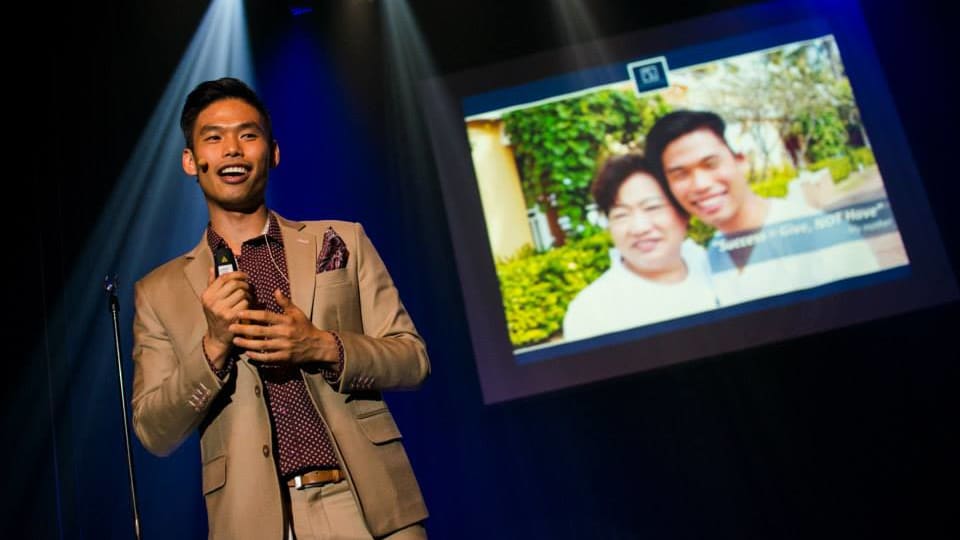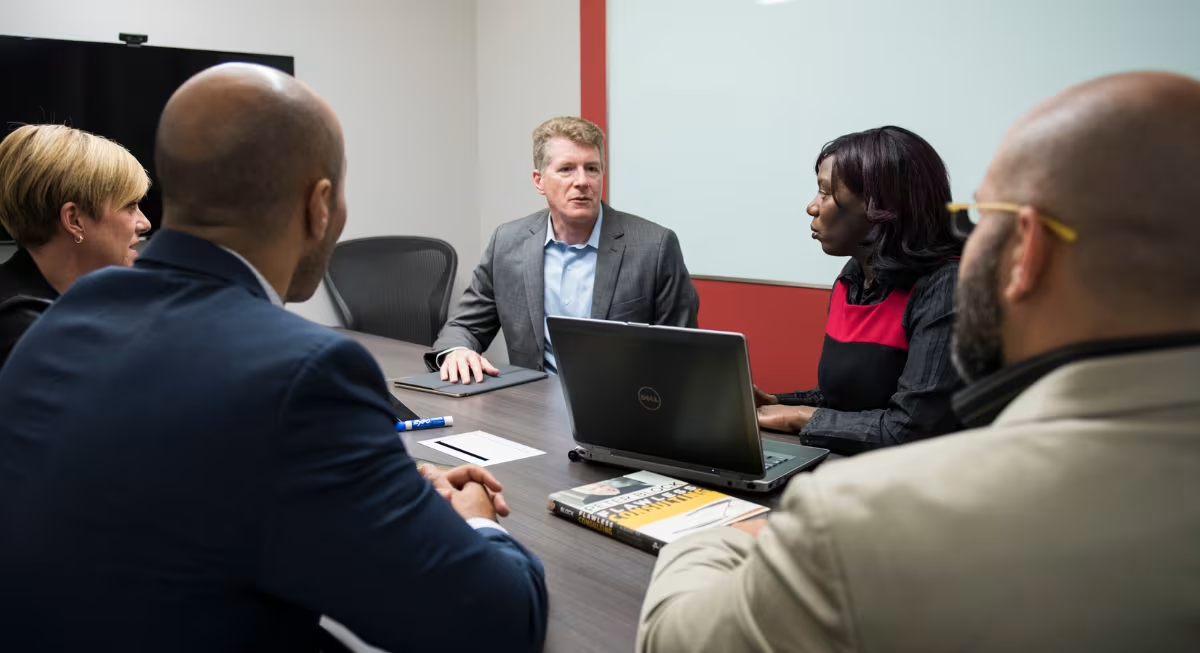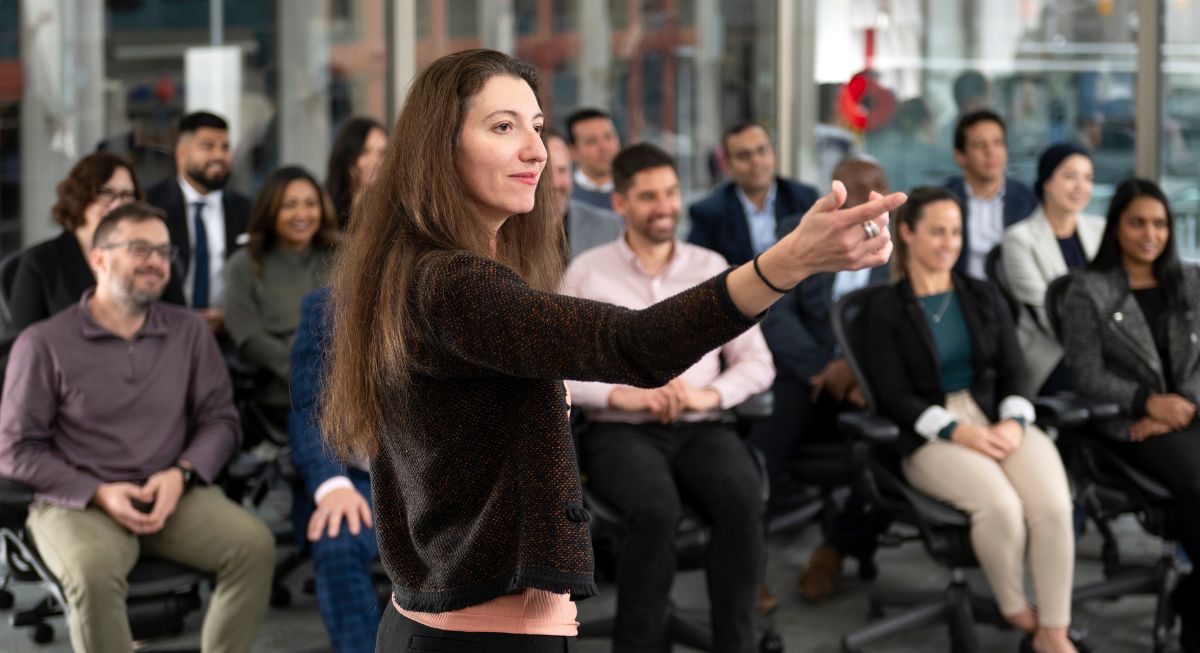One of the key value propositions for studying in an Executive MBA program is learning from professors who are not solely focused on academic and research but who have also worked in or are linked with industry, especially on a subject matter that is continually evolving - gaining the competitive advantage by integrating business and technology.
Professor Umar Ruhi is an educator and researcher in the Telfer Executive MBA program at the University of Ottawa. He brings a wealth of experience and a deep commitment to both teaching and research. He strives to create an engaging learning environment for EMBA candidates while helping them bridge the gap between business and technology in the ever-evolving landscape of IT management.
Providing a holistic perspective on technology management
With a diverse educational background combining computer science with an MBA and a Ph.D. in information systems and knowledge management, Professor Ruhi’s interdisciplinary expertise provides a holistic perspective on technology management in his ‘Digital Organizations’ class.
There is often a misconception by candidates who think Professor Ruhi teaches a technology course in the EMBA. He clarifies that his course is not about technology but rather about technology management strategy. He aims to equip candidates with the knowledge and skills required to align objectives within the business and technology opportunities with it, as well as effectively manage digital transformation within organizations. A favourite quote that he shares with EMBA candidates is from Bill Gates: “Information technology and business are becoming inextricably interwoven. I don't think anybody can talk meaningfully about one without talking about the other." Through his teaching, Professor Ruhi aspires to provide a comprehensive understanding of the role of technology in business. He not only highlights the advantages of technology but also addresses potential challenges and limitations.
Learning from personal industry experience for academic advancement
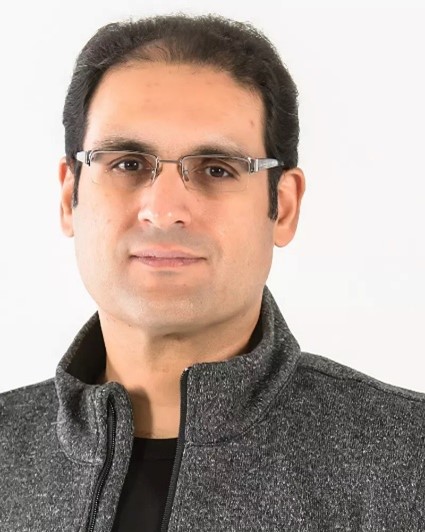
In an Executive MBA program where candidates bring extensive work experience to the classroom from various industries, Professor Ruhi knows the importance of staying current in his field of expertise and ensuring his course content is relevant and practical. He draws on his industry experience, interdisciplinary expertise, impactful research, and readings to accomplish this.
Professor Ruhi's journey in academia has been influenced by his extensive practical experience in the corporate world. Before venturing into academia, he worked in various roles in the IT industry, with companies such as General Electric, IBM and The World Bank Institute in Washington gaining hands-on experience in software development, human resources consulting, and knowledge management. The insights he has gained through work experience in business and technology positions provide candidates with real-world examples of how technology impacts organizations and individuals.
Practical industry implications from applicable research projects
Additionally, his research focuses on the adoption of technology within organizations and by individuals. His projects, such as the adoption of blockchain technology in the real estate sector, have practical implications and have resulted in a patent-worthy technology. His research efforts are applicable in nature and address real-world challenges making it relevant for his discussions in the EMBA classroom.
Dedication to staying current in the field is evident through Professor Ruhi’s continued consulting work in the industry. He maintains a symbiotic relationship between teaching and research, keeping his knowledge up-to-date and relevant through reading academic journals and white papers published by consulting companies. This ensures that the EMBA candidates benefit from the latest industry insights and trends.
Commitment to experiential learning and the value of real-world experience
Professor Ruhi's teaching philosophy revolves around creating a strong connection between his course and candidates' real-world experiences. His commitment to experiential learning is a key reason candidates award him high evaluation marks. He incorporates hands-on activities, simulations, guest speakers, and discussions into his classes, ensuring that students engage deeply with the subject matter. This approach leads to high levels of practical and theoretical learning.
Grasping the dynamic field of IT management can be a challenge for leaders. With the guidance of Professor Ruhi, EMBA candidates navigate the intersection of business and technology in an engaging and tangible manner allowing for a deeper understanding of technology management and its integral role in the corporate world.
